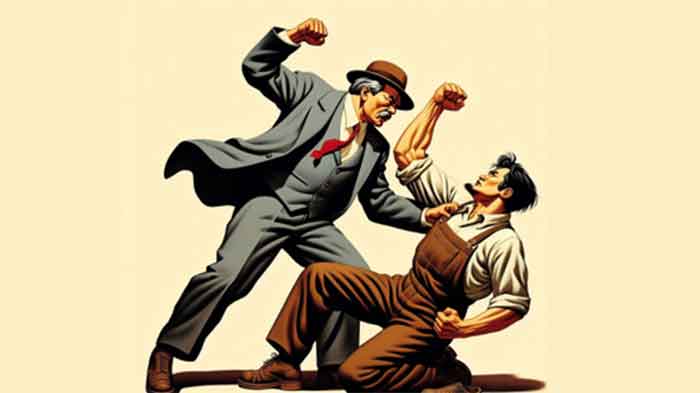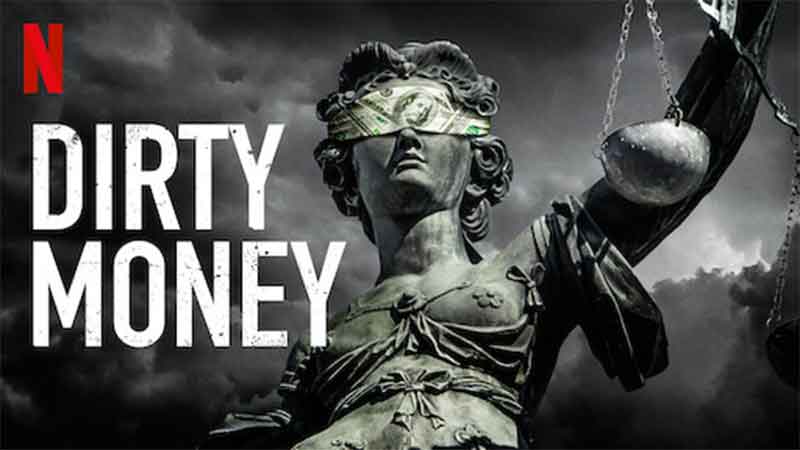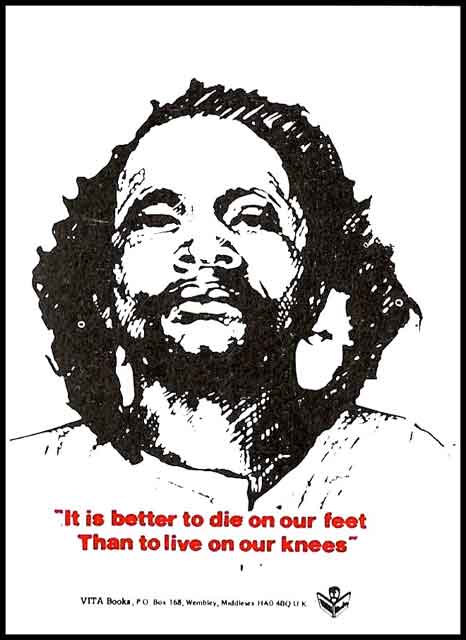
Countercurrents has posted an article – “Crime, Justice and Capitalism” – by Mister Bhabani Shankar Nayak (Coventry University, UK) on July 12, 2020, which deserves a few explanations.
The spirit and orientation of the article – anti-capitalism – is nice. It joins today’s millions tormented and tortured by capitalism. The voice must be appreciated.
However, a few points raised in the article need a brief explanation as the time is full with confusing ideas appearing anti-capitalism, anti-imperialism, but, in essence, fueling bourgeois ideas/concepts, which, in the long-run, will hinder organizing people’s struggles.
In the 1st paragraph, the article said: “From Iraq wars to the killing of Osama Bin Laden, and from honor killings to domestic violence, police encounters, and custodial deaths around the world are part of the same genealogy, that justifies violence on moral grounds.”
“Honor killing” is not of the same genealogy as of the rest mentioned in the sentence. It – honor killing – originates within a medieval ideology, to be specific, within a medieval/retrogressive culture born out of a backward economy, and at times, tolerated/patronized by capitalist economy, theorized by a backward ideology. And, ideologies are related to property.
The same with “From Iraq wars to the killing of Osama Bin Laden”. The 1st – the Iraq War – is completely different from the next – the killing of Osama Bin Laden. The US’ and its NATO allies’ Iraq War was an imperialist invasion, aggression and war against a sovereign country while the killing of Bin Laden was part of an imperialist trick on its own chess board, with its allies abroad and electorate at home, and a trick involving imperialism’s proxy. Imperialism was playing with itself, with its own teammates. An imperialist aggression, an invasion, a war against a sovereign country originates from a source while the trick originates from another source. The trick showed imperialism’s limit while the war showed imperialism’s desperate condition, a few of its crises, and a reality at world-level existing at that time.
Domestic violence is an issue that shouldn’t be equaled with imperialist invasions, tricks, etc. Even in socialist societies, domestic violence may persist up to certain time. Its origin is not in the place from where imperialism originates. Otherwise, finding domestic violence in socialist societies up to certain time may inspire some bourgeois feminists to cancel socialism as they claim/will claim: See, there’s domestic violence in socialism; so, Marx and socialism are wrong. But, the case is not that easy, and simple, and, it doesn’t move along straight line although some scholars expect/theorize in that way. Building up socialism, and eliminating all vestiges and traces of old societies is not a one-stroke job, which once many admirers, supporters, workers, theoreticians and leaders of socialism wrongfully, and childishly, hoped. And, their wrong hopes led many of them to get disillusioned with “socialism” they dreamt about. Their dream was not a dream that crops up from reality – a reality of contradictions within society, a process of social transformation, a process of transfer of power from the exploiting classes to the exploited, which is a long process. Their hopes had no relation with either reality or process of social changes.
To take away confusions, these points should be clarified. There’re no easy, simple and straight explanations and analyses regarding society, politics and class. Easy, simple and straight explanations and analyses lead only to bourgeois-imperialist camp, which is prevalent within certain parts of political camps opposing imperialism and capitalism, and standing for progress, for a society free from exploitation, free from clutches of private property.
The same paragraph said: “The masses fall into such false intellectual narrative [probably, the statement means “justifications to institutionalize violence and patronize it in the name of nationalism, religion, community and caste honor” as has been said in the preceding sentence] and celebrate such extra judicial, structural and institutionalized violence as justice.”
It’s an aspersion about the masses, i.e., masses of people. The masses don’t fall into false intellectual narratives on their own. The masses have their own narratives, which is distorted by cartels of criminals – anti-people forces. Doses, in tons, of false intellectual narratives are administered into their life and psyche. Part(s) of the masses of people is(are) led/compelled to accept those “false”, actually ruling interests’, narratives. “Masses fall” is a dangerous “finding”, which lets mis-doers and criminals – anti-people classes and political forces – go scot free and put blame on the masses of people.
The same paragraph said: A certain type of, which has been mentioned in the article, “violent social formulation derives its cultural legitimacy from Christian theology.” Was that certain type only connected to the Christian theology? Was there no “such violent social formulation” before the advent of the Christian theology? And, at later parts, have all “such violent social formulation(s)” derived their “cultural legitimacy” from that – Christian – theology? Were all other theologies absent innocently? It’s sure, the article knows the answer. Such formulations are neither correct nor do help the masses of people. Like the Gospel of Matthew, as the article has referred to, many other gospels and edicts do exist in abundance. The claim the article has made is fully and completely sectarian, and hatred-filled.
The same paragraph said: “The patronage of violence is an integral part of most of the world religions.”
Are the claims – “patronage”, “integral”, “most” – factual? Is there any data based on which this claim related to violence and religion has been made? How many religions are there on this earth now? And, has there been any comparative study covering all the religions based on which the article has made such a sweeping claim – “most”? Is it fair to accuse the most without any factual basis? Don’t religions tell about love, peace, humanity? Has the article looked into the issue of private property and its relation with violence? Has the article looked into the issue of production – mode and relations production created at different phases of a society – while making such a claim? The article would have found, had it looked into the issue in a responsible way, many religions, numbering more than a few thousand, are far away from violence. And, has the article looked into the issue dialectically? And, has the article thought about in a responsible way while making such a claim related to such a sensitive issue that touches billions of people? With issues related to peoples, especially with sensitive issues, there’s no scope of making irresponsible remarks. Irresponsible remarks, even though those appear “heroic”, harm people. All should learn from history.
The article said in the same paragraph: “[…] justice derives its legitimacy from religious and moral discourses, which is antithetical to ideals of justice.”
The article, it seems, considers the ideals of justice universal and consistent as it says “ideals of justice”. But the reality is opposite. The ideals have changed over time and ages; and are changing; and will change. Aristotle justified slavery in ancient Greece; John of Salisbury justified serfdom in feudal Europe; and there’re similar many “justifications” in most lands including Bangladesh, India, different parts of India, and lands to its east and west in all ages and epochs, which everybody know, but were/are not challenged and questioned all the time and by all. Aristotle based his “justification” on the “finding” that slave is naturally inferior to the freeman while the John of Salisbury “found” basis of his claim in “the law of universe”. The same style, trick, is also found now. Therefore, there’s no universal “ideals of justice”, as the article said. The article will find this – nothing like universal ideals of justice – if it looks into the source of ideals over the ages, in societies, and, again it’s to be said, in relation to production – mode and relation. Here again comes the issue of dialectics. Otherwise, blaming wrong actors will be the only work, and the consequence will be spreading confusion among the commoners – the actors whose interests the article is trying to defend.
The 2nd paragraph said: “The culture of consumerism has promoted a culture of competition […]”
In fact, it’s the opposite – competition, in one way, promotes consumerism; and competition is capital’s job while consumerism is inflicted into life by capital as part of its expansion. “Competition generally,” writes Marx, is the “essential locomotive force of the bourgeois economy, does not establish its laws, but is rather their executor. Unlimited competition is therefore not the presupposition for the truth of the economic laws, but rather the consequences – the form of appearance in which their necessity realizes itself.” (Grundrisse, tr. by Martin Nicolaus, Penguin Books, in association with New Left Review, 1981) Marx adds: “[F]ree competition is the adequate form of the productive process of capital. The further it is developed, the purer the forms in which its motion appears.” (ibid.) Free competition, according to Marx, sets free capital. (ibid.) And, consumerism, if it’s considered as that psychological disease of insatiable desire to purchase stuff and more stuff that capitalism produces within its consumers, is a chain that enslaves wide masses of people, and it’s related to wage, increased productivity and increasing profit, which is increased and increased exploitation.
The same paragraph in the article said: “The capitalist transformation of need-based culture to a desire-based culture with the help of advertisement industry, which has destroyed collective foundations of society.”
“Collective foundations of society” is lost long before the advent of capitalism, since the birth of private property. Moreover, there’s nothing like “desire-based culture” in capitalism as the article finds. In capitalism, there’s a single culture, which is greed-based. This takes different forms as it infiltrates, manipulates, pervades, dominates different strata and classes of capitalist society at different stages with different functions; and it befriends its by-gone relatives from its predecessors at opportune moments with a particular motive – confuse the people.
The same paragraph said: “The ascendancy of capitalism has increased wealth without diminishing miseries. It has led to the concentration of wealth in the hands of few, and growth of huge social and economic inequalities in the society.”
Was not there increasing of wealth within feudal or slave owning societies? Was not there concentration of wealth in those societies? Were miseries diminishing in those societies? The fact is: In those societies, wealth was increasing, concentration of wealth was going on, and miseries were increasing. Otherwise, someone shall engage into composing a poem or a song – ebaar feeraao more, let me go back.
The 3rd paragraph in the article is nice as it begins with, “The rotten capitalist system continues to produce miseries for many and prosperity for the few.”
Keynes wrote in 1933: “The decadent international but individualistic capitalism, in the hands of which we found ourselves after the [1st World] war, is not a success. It is not intelligent, it is not beautiful, it is not just, it is not virtuous – and it does not deliver the goods. In short, we dislike it, and we are beginning to despise it.” (“National self-sufficiency”, Yale Review, vol. XXII, no. 4, (June 1933), summer, 1933)
The same paragraph in the article said: “Laws are made by the capitalist classes to protect their own interests.”
It’s not only the capitalist classes in capitalist societies, but, in all societies, the dominant classes formulate laws.
The 5th paragraph in the article said: “The contemporary capitalism is organized around ideals of illiberal and undemocratic governance of the society in which citizens are free consumers and wage labors.”
It’s erroneous. Capitalism, as a system, was and is always illiberal and undemocratic. It was never liberal; it was never democratic in terms of people, in terms of economy, in terms of political power. The illiberal and undemocratic governance is not a character of “contemporary” capitalism. It was always there, since the beginning of its journey. It’s a comparative measurement. And, still now, there is nothing called “contemporary capitalism”, a different form from “old” capitalism. Capitalism’s basic character has not changed. With increase of its crises – the number of its crises, increase in intensity and extent of its crises, it is turning more desperate. And, along with its desperation, cracks are developing within the system, within the system’s different parts. And, this is happening in matured bourgeois democracies. This situation is compelling it to act in more illiberal way, more undemocratic way. But, it was from its very beginning illiberal and undemocratic. A look at its history will show this. Rather, now-a-days, it is compelled to behave in a comparatively “restrained” way at some moments in some areas and places within certain conditions. These – its illiberal and undemocratic character, its compulsion to get restrained for some moments in some places and areas within certain conditions – demand proper analysis as these bear significant meaning, and the meaning is useful for people challenging/going to challenge capitalism.
The darkness is not unending, which the article finds (“Such a system moves the society into unending darkness of injustice” – the last sentence in the same paragraph). If it is seen dialectically, the darkness ends, shall end, will end. Otherwise, societies have to stand still, which is not possible in any way. To tell this fact one can metaphorically quote the famous saying by a famous scientist, which everyone knows. Following are a few lines from a recent poem: “But, the darkness of despair/ Will pass/ And life will move out of the tunnel/ And embrace ‘light’ of hope./ Humanity will learn lessons” (K Sheshu Babu, a writer from everywhere, and heavily influenced by Assamese poet Bhupen Hazarika’s “Ami Ek Jajabor” (“I am a wanderer”), “‘Light’ at the end of the tunnel”, Borderless Journal, July 14, 2020). There’re many such hopes expressed by many, and the hopes are not baseless.
The claim or conclusion, in the last paragraph, “[…] capitalisms are unnatural […] to all human beings in all societies” is not factual. The claim is also not according to law/process of social development. In a feudal society or a society groaning under medieval/sectarian rule and ideology, capitalist development is one-step forward if no other way is followed. In France or in England, was not capitalism a better option during the time it overthrew the feudal rule? The dissolution of feudal society set free serfs, peasants and laborers tied to land and guilds respectively. But, then, capitalism turned, retrogressive. It shouldn’t be forgotten that “[b]ourgeois democracy,” as Lenin writes, is “a great historical advance in comparison with medievalism [….]” (The Proletarian Revolution and the Renegade Kautsky, Collected Works, vol. 28, Progress Publishers, Moscow, erstwhile USSR, 1977) But, at the same time, Lenin adds in the same sentence: [bourgeois democracy] “always remains, and under capitalism is bound to remain, restricted, truncated, false, hypocritical, a paradise for the rich and a snare and delusion for the exploited, the poor.” Today, bourgeois democracies, in broader sense and not specifying by its varieties in countries, with their activities everyday confirm Lenin’s finding, which is regularly overlooked/ignored by the mainstream, and sadly, at times, by a section of the pro-people political forces.
Will it be possible for any court of law in any society ruled with medieval system and ideology to rule like the recent ruling by the US Supreme Court regarding jurisdiction on about half of Oklahoma or similar measure? And, there are many instances. The basic point here is not the court ruling, which is cited as a recent simple example; the basic point is development of society, rules/laws of development of society. Has not capitalism once played advanced role? Therefore, such blanket conclusion, as the article has made, is not scientific, not real. Such conclusions create confusion, which ultimately harms journey to advanced stage after demolishing capitalism, after passing capitalism behind. Similar blanket conclusions are creating reactionary, sectarian slogans in many countries today although these attract many as “protesting” calls. In countries, these slogans are sometimes color-based, and in countries, these slogans appear tilted towards the trampled – dalit; but both are sectarian and reactionary. These slogans ultimately play at the hands of the exploiters as these slogans either base on color that appear on human body-surface, the illogic of defining inequality, dispossession, non-power and injustice, or on only a part of the trampled although the shackle of capital chains all the exploited of all colors and all the trampled crossing caste-line. It’s a pathetic practice by a section appearing fighting for progress. After years from today, when one shall look back with a class-conscious eyes, it’ll be found that these color-, caste-, etc.-based slogans played in the hands of capital, that ignored class question, that ignored the question of state machine and class power, that ignored class struggle against capital, against exploitation, against class suppression, that ignored the glaring fact that capital played these sectarian slogan in its favor with a tact administered from an opposite end with the help of seeming rebels. It’s astonishing that these sectarian slogans are being raised after more than a century, when the working people in Russia made the opposite journey, which Lenin, while he was fighting against the Bundists, and raising the issues of compartmentalization and dis/unity of workers, told in the following ways: “[S]truggle against the bourgeoisie of Russia as a whole”, “the whole of proletariat”, “we must not set up organizations that march separately”, “we must not weaken the force of our offensive by breaking up into numerous independent political parties”, “we must not introduce estrangement and isolation”, “the closest union and fusion of the entire proletariat fighting against the tsarist autocracy”. These, and many similar statement, and analysis of the statement are in volumes 6, 7 and 8 in Lenin’s Collected Works (Progress Publishers, Moscow, erstwhile USSR, 1974 and ’77) He cited Odessa workers on a joint strike, attending joint meetings and joining joint demonstrations: “Have no fear, have no fear, […] we have neither Jews nor Russians in our midst, we are all workers, life is equally hard for us all.” (“The latest words in Bundist nationalism”, Collected Works, vol. 6, emphasis in the original.) But, today, there’re, at least in one advanced bourgeois economy, unions based on color, and there’re, at least in one south Asian country, organizations along caste-line organized with zest in the name of opposing caste segregation, which is like practicing apartheid in the name of opposing apartheid and in the name of victims of apartheid, and denying look at the source of apartheid. “Bravo, dear warriors” for “forgetting” class line, for forgetting the source of suppression, and for breaching barricade in the guise of a friend. These happen, because “things” – issues/questions – related to the working people are not seen properly, are seen superficially and superfluously. That’s the reason that had led to this explanation.
Farooque Chowdhury writes from Dhaka, Bangladesh.
SIGN UP FOR COUNTERCURRENTS DAILY NEWSLETTER















































